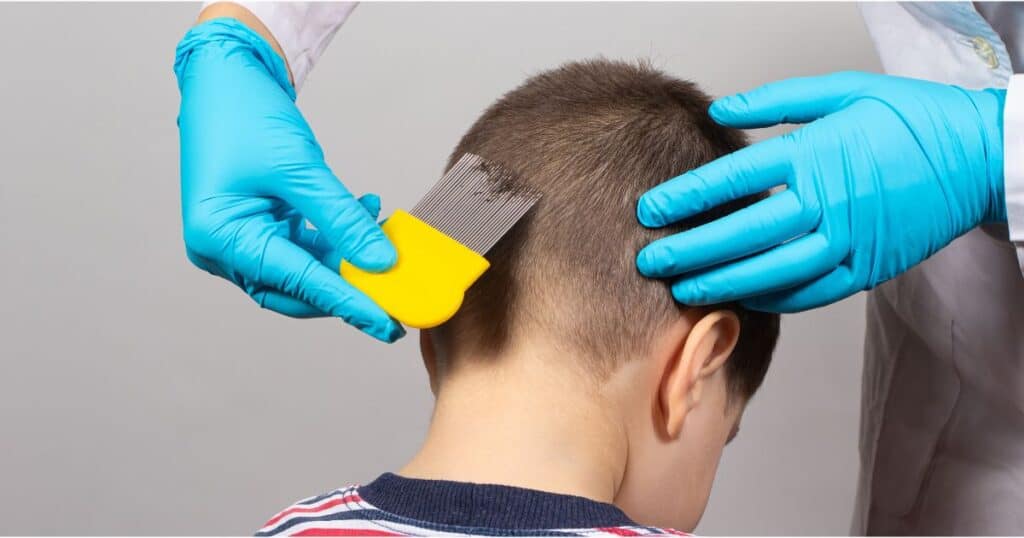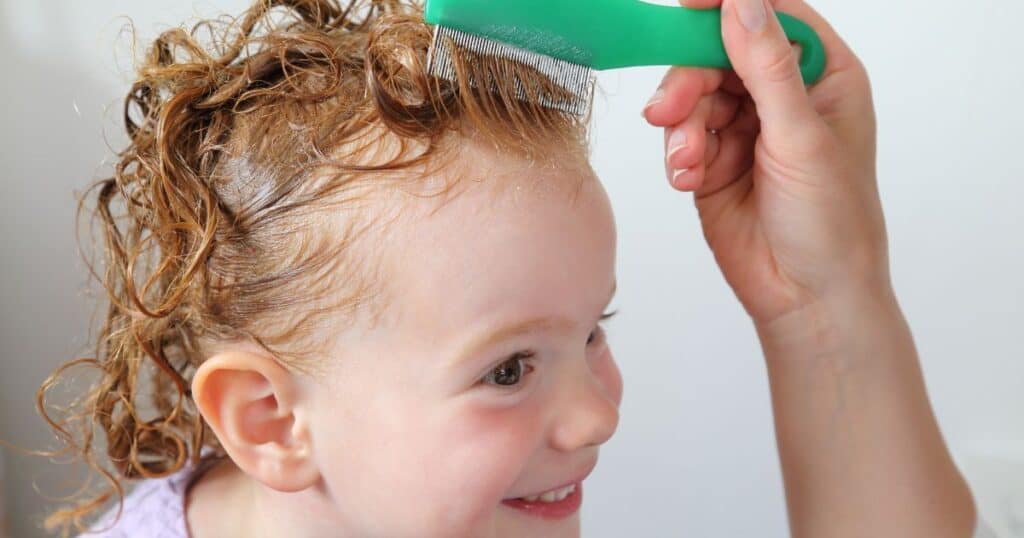Lice Questions Answered: Do Lice Prefer a Certain Blood Type?
Head lice are a common problem that many families encounter. Despite extensive efforts to understand and control these tiny parasites, a lingering question often arises: Do lice prefer a certain blood type?
In this blog, we will delve into the details of this topic, referencing scientific research to uncover the facts behind lice feeding habits and their potential preferences. Let us explore what we know about lice, how they choose their hosts, and whether your blood type makes you more prone to lice infestations.
Head Lice and Their Behavior
Before we discuss blood types, it is important to understand some basic head lice facts. Head lice (Pediculus humanus capitis) are parasitic insects that live on the human scalp and feed on blood.
They are equipped with tiny claws that allow them to cling to hair and crawl quickly from one head to another, which is primarily how lice spread. They do not fly, hop, or jump, so close head-to-head contact is necessary for transmission.

Lice feeding habits involve attaching themselves to the scalp and using their mouthparts to pierce the skin and draw blood. However, the question of whether there is a lice preference for certain human traits, such as blood type, has piqued the curiosity of researchers and parents alike.
Let us investigate what the science says about lice and blood type.
Exploring Lice and Blood Type Preferences
To put it simply, current scientific studies do not support the idea that lice prefer a certain blood type. Researchers have found that head lice can infest any individual, regardless of their blood type.
A study published in Medical and Veterinary Entomology explored the lice-feeding habits of the body louse (Pediculus humanus humanus). Researchers fed lice different types of human blood using an artificial blood-feeding system to observe their feeding success, longevity, and egg production.
The study examined several blood types, including A+, O+, B+, AB+, O-, A-, B-, and AB-. Their findings revealed no significant differences in the lice’s feeding success, longevity, or egg production between the different human blood types.
This research suggests that lice do not prefer a certain blood type. Instead, they seem to be able to adapt to a variety of blood types without any impact on their survival or reproduction.
Factors That Influence Lice Feeding and Longevity
Although the study found no direct lice preference for blood type, it did explore other factors that can influence lice feeding habits and longevity:
Switching Blood Types
The researchers also investigated what happens when lice switch from feeding on one blood type to another. They found that when lice were fed one blood type and then immediately switched to a different type, they consumed smaller blood meals, their longevity decreased, and they laid fewer eggs than lice that fed on the same blood type twice.
This suggests that while lice can feed on various blood types, consistency in their feeding appears to be more important for their success than the specific blood type itself.

Blood Storage and Anticoagulants
The study also looked at how blood storage time and different anticoagulants affected lice feeding success. The findings showed that as the storage time of blood increased, the lice’s blood intake and longevity gradually diminished. The type of anticoagulant used, such as EDTA or heparin, also had a notable effect on lice.
For example, blood treated with EDTA significantly reduced lice longevity and the number of eggs they laid. This further supports the idea that factors other than blood type are more influential in lice survival.
Hair Type and Cleanliness
Apart from blood type, many people wonder if lice prefer specific hair types or levels of cleanliness. However, evidence suggests that lice do not show a preference for any particular hair type, length, or cleanliness level. They can infest hair that is clean or dirty, straight or curly. Thus, the idea that lice select their hosts based on hair characteristics is another myth.
Effective Ways to Manage and Treat Lice
Now that we have established that lice infestations are not related to blood type, what matters most is how we address and treat infestations. At Lice Clinics Charlotte, we offer effective lice treatment options designed to safely and efficiently eliminate lice, regardless of the host’s blood type.
Airtral Exclusive Treatment
We use the latest dehydration technology with heated air to kill lice and their eggs. This three-step process involves a comb-out and the application of an all-natural treatment solution, ensuring that patients leave our clinic lice-free and ready to return to daily activities. This treatment does not require any follow-up, making it a hassle-free option.
Traditional Comb-Out Service
For children under three years old, we provide a traditional comb-out service, where our technicians thoroughly remove lice and nits from the hair. An additional soothing treatment solution is applied to ensure complete elimination. While some combing at home may be needed, this service is highly effective in managing lice infestations.
Prevention and Early Detection
Although lice infestations cannot be completely prevented, there are steps you can take to minimize the risk and detect them early:
- Regular Checks: Use the wet combing technique weekly to check for lice. Applying conditioner and combing through the hair with a fine-toothed lice comb helps detect any lice early before they spread further.
- Avoid Head-to-Head Contact: Lice spread primarily through close contact. Teach children to avoid head-to-head contact during play, sports, and other group activities.
- Do Not Share Personal Items: Advise children not to share combs, brushes, hats, hair accessories, or headphones, as lice can transfer through these items.
- Wash Bedding and Clothing: If someone in the household has an active infestation, wash bedding, hats, and clothing in hot water (at least 140°F) to remove any lice that might have fallen off the scalp.
- Use Separate Towels: Ensure that each family member uses their own towel to avoid accidental transfer of lice.
- Contain Personal Items: Keep personal items such as hats, scarves, and jackets in separate spaces, especially in environments where items are stored together, like classrooms or locker rooms.
- Tie Back Long Hair: Keeping long hair tied back in buns, braids, or ponytails can reduce the likelihood of lice transferring from one head to another.

Bust the Lice Myths Today
The answer to whether lice prefer a certain blood type is no. Studies show that lice can feed on any blood type without affecting their survival. Additionally, lice do not favor specific hair types or cleanliness levels. The real focus should be on prevention and effective treatment.
If you are dealing with a lice infestation, act quickly. Lice Clinics Charlotte offers proven lice treatment options to ensure you and your family are lice-free. Book an appointment today and let our professionals handle the rest.
